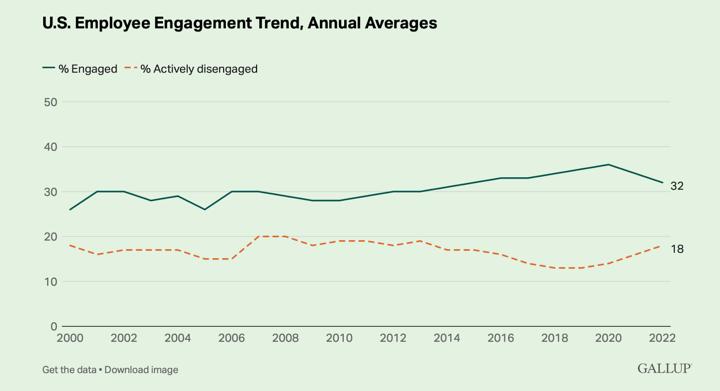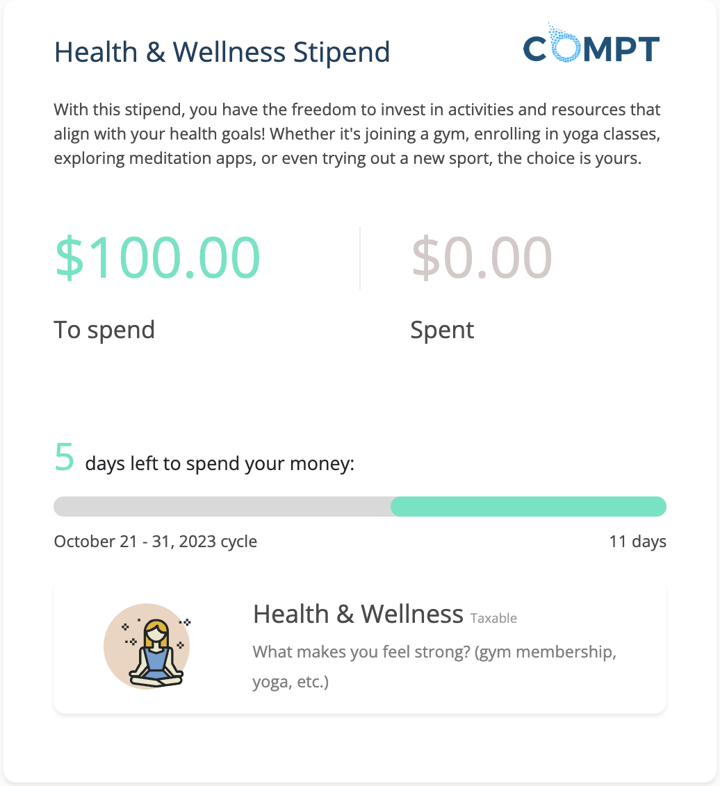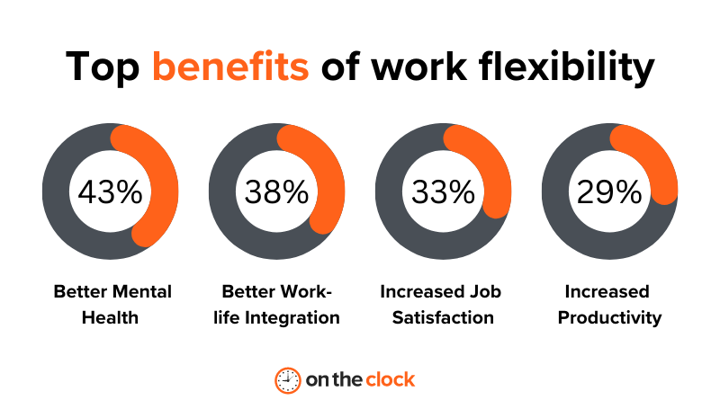Frontline employees are individual who directly interact with customers, deliver crucial services, and maintain essential equipment on a day-to-day basis. They are critical in sectors such as retail, hospitality, healthcare, and customer service.
To recognize the invaluable contributions of frontline employees, businesses must prioritize their well-being and satisfaction by offering benefits that satisfy the unique needs of this group.
This post highlights the seven essential benefits that every business should provide for their frontline workers. By offering these benefits, companies can enhance employee morale, productivity, and retention, ultimately leading to greater success in the marketplace.
5 Reasons Businesses Need to Offer the Right Benefits for Frontline Workers
From attracting and retaining top talent to boosting productivity and enhancing company reputation, these reasons highlight the significant impact that well-designed benefits packages can have on frontline employees.
1. Attracting and Retaining Top Talent
Offering the right benefits is crucial for improved recruitment efforts for frontline workers in a competitive job market.
According to McKinsey, annual turnover for frontline retail workers has been as high as 60%. In hospitals, the turnover rate is more than 100%.
Effectively retaining frontline workers requires businesses to care for those who are consistently engaging with customers, patients, etc.
When job searching, many workers prioritize companies that provide comprehensive benefits packages, including healthcare, retirement plans, and work-life balance programs, particularly in frontline work.
2. Improving Job Satisfaction and Morale
The right benefits can significantly contribute to better job satisfaction and boosting morale among frontline workers. Companies that are unable to provide their frontline employees with improved job satisfaction and engagement at work will find it challenging to hire and retain workers.
When a frontline worker feels valued and supported through benefits such as flexible work arrangements, wellness programs, and recognition initiatives, they are more likely to be engaged and motivated. Employees with decreased job satisfaction levels are unlikely to contribute to an efficient work environment.
3. Enhancing Productivity and Performance
Providing the right benefits can have a direct impact on employee productivity and performance. For example, offering opportunities for career development and training can empower employees and enhance their abilities to complete tasks, leading to increased efficiency and higher job satisfaction.
Frontline managers should consistently engage their team to learn more about which benefits boost retention and how the current offerings impact their team.
4. Reducing Absenteeism and Turnover
In 2022, almost a fifth of American employees felt actively disengaged at work. The right benefits can make employees feel like their wellness is important to their employer and improve engagement.
By offering benefits like paid time off, sick leave, and a healthy work-life balance, businesses can help reduce absenteeism and turnover rates. Employees who feel supported and have access to proper resources and support systems are more likely to stay committed to the organization.

5. Enhancing Company Reputation and Image
Benefits play a significant role in shaping a company's reputation and image. Businesses that prioritize their employees' well-being and offer attractive benefits are seen as more socially responsible and attractive to customers, investors, and potential employees.
This positive reputation can provide a competitive advantage in the market and contribute to long-term business success.
7 Essential Benefits Every Business Should Provide for Their Frontline Workers
There are numerous benefits that businesses can deliver to essential workers. While each business is different and might require a unique approach, there are some benefits that should be universally available to every employee. These include:
1. Competitive Compensation and Reward Programs
Compensation and rewards can help to create a sense of financial security for frontline workers. Implementing a performance-based reward system can motivate employees to excel in their roles and achieve targets. This can include performance bonuses, profit-sharing programs, or commission structures for sales teams. These rewards should be tied to clear and measurable performance criteria.
In addition to competitive salaries, businesses can offer a range of benefits to enhance their compensation package. This can include health insurance, retirement plans, paid time off, flexible work arrangements, professional development opportunities, and employee assistance programs.
Recognizing and rewarding employees' efforts and achievements can also be done through non-wage benefits. This can include awards, public recognition, career advancement opportunities, and participation in special projects.
2. Comprehensive Health and Wellness Packages
Businesses should offer comprehensive health and wellness packages to their frontline employees for several reasons.
Frontline employees often face high levels of stress and a heavy workload, resulting in physical and mental strain. Providing comprehensive health and wellness packages not only helps maintain their overall health, but helps them do their jobs better.
When employees feel valued and supported, they’re more likely to be engaged and productive in their work, leading to better business outcomes.
Investing in comprehensive health and wellness packages can also result in cost savings for businesses in the long run. By focusing on preventive care and promoting healthy habits, employers can help prevent chronic illnesses and reduce the risk of workplace injuries. This leads to lower healthcare costs, decreased absenteeism, and improved productivity.
Moreover, when employees have access to wellness programs such as gym memberships, nutrition counseling, and stress management techniques, they’re better equipped to make healthy lifestyle choices, which can further reduce healthcare expenses.
With Compt, you can create a health and wellness stipend so employees can make wellness-related purchases from vendors of their choice.

3. Flexible Work Arrangements and Work-Life Balance
Flexible work arrangements and work-life balance are crucial for frontline workers and essential workers for several reasons. Implementing flexible work arrangements help businesses to position themselves as employers of choice in a tight labor market.
Because of the demanding nature of their work, especially in highly customer-centric positions such as hospital nurses or retail workers, frontline workers must manage increased physical and mental strain.
While it's not always possible for certain positions, providing alternative work arrangements for frontline workers can greatly increase work-life balance and improve job satisfaction. A more flexible work schedule is a highly desired benefit for many frontline workers.
Some companies augment their flexible work offerings with a remote work stipend--this helps employees purchase the things they need to make their remote work environment a productive one.
When employees feel valued and supported, they’re more likely to be engaged and productive in their work, leading to better business outcomes. In turn, this leads to lower healthcare costs, decreased absenteeism, and improved productivity. Recent research revealed that work flexibility directly contributes to a 29% increase in productivity.

4. Training and Development Opportunities
Providing training and development opportunities for frontline workers is essential for job growth and career advancement.
Businesses should invest in training programs that enhance the skills and knowledge of their frontline workers, ensuring they are equipped to handle their responsibilities effectively. These programs can include on-the-job training, workshops, seminars, and access to online learning resources that can improve the chances of job growth for every employee.
Some companies offer this benefit in the form of a learning and development stipend, so employees can purchase the resources they need to grow their skillset.
By investing in their development, businesses not only improve the capabilities of their frontline employees, but also increase their job satisfaction and motivation.
5. Career Advancement Pathways
Having clear and accessible career advancement pathways is crucial for frontline workers. Businesses should create opportunities for their frontline employees to progress within the organization and take on roles with more responsibility and higher pay.
This can be achieved by offering promotional opportunities, creating mentorship programs, and providing guidance on skill development and the experiences required to move frontline workers up the career ladder. By offering career advancement pathways, businesses not only demonstrate their commitment to employee growth, but also foster loyalty and tenure among their frontline workers.
6. Recognition and Appreciation Programs
Recognizing and appreciating the efforts of frontline workers is essential for maintaining their motivation and engagement.
Hourly workers and frontline healthcare providers are often taken for granted by the public and it is important that employers provide these staff with the recognition they deserve. These supports can include rewards and incentives, such as employee of the month/year awards, spot bonuses, or public recognition.
Additionally, fostering a culture of appreciation by encouraging team members and managers to express gratitude and acknowledge each other's contributions can boost morale and create a positive work environment.
By providing training and development opportunities, career advancement pathways, and rewards and recognition programs, businesses demonstrate their investment in the growth and well-being of their frontline employees and allow themselves to stand out in a tight labor market.
These benefits not only improve job satisfaction and employee morale but also contribute to the overall success of the organization by nurturing a skilled and motivated frontline workforce.
7. A Strong Company Culture to Partake In
Culture is not often thought of as an employee benefit but it can have a huge impact on an employee’s experience at the company. Businesses that have strong and clearly defined values and beliefs can find employees who embody those values in their daily lives.
It is important that business leaders carry themselves in accordance with these values. Culture is felt at all levels of an organization but it is often designed at the very top. Managers and team leaders should be able to easily define their team’s values and show ways that their actions contribute to this overall culture.
Improve Your Benefits Offerings Today to Attract and Retain the Best Talent for Your Business
Providing essential benefits for frontline employees is not just a matter of corporate responsibility, but also a strategic investment towards long-term success.
By prioritizing the well-being and satisfaction of frontline employees, businesses can foster a positive work environment, enhance employee engagement, and ultimately drive better customer experiences. The seven essential benefits discussed in this post are instrumental in meeting the needs and expectations of frontline workers.
As businesses continue to evolve and adapt to changing market dynamics, it’s crucial that they show frontline employees that they care about their wellbeing. By doing so, businesses can build a motivated and dedicated workforce that forms the foundation of their success.
About the Author

Dean Mathews is the founder and CEO of OnTheClock, an employee time-tracking app that helps over 15,000 companies worldwide (including many with frontline workers) track time.
Dean has over 20 years of experience designing and developing business apps. He views software development as a form of art. If the artist creates a masterpiece, many people’s lives are touched and changed for the better.
When he is not perfecting time tracking, Dean enjoys expanding his faith, spending time with family and friends, and finding ways to make the world just a little better.
